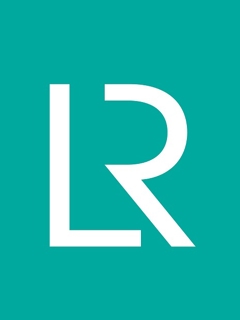12 October 1869 was a landmark day for Lloyd’s Register, as Joseph John Tucker arrived in Shanghai to take up his post as LR’s first surveyor in China. The office was LR’s sixth overseas office, the second outside of continental Europe and the first to be established in Asia. Tucker carried out his first survey in November 1869 on the Dora, a 379 ton barque built in Sunderland in 1863 and owned by Holding & Co, and he was quick to point out the opportunity presented by China to his leaders at the marine classification society.
Our business in China is crucial to LR, and I believe our long history shows our strong commitment to supporting Chinese initiatives for continued economic growth and prosperity.
On 12 April 1870, he wrote to the General Committee that ‘from six months’ experience, I have no hesitation in saying that, on the arrival of instruction authorising the Agents for Lloyd’s to call on my services, not only will this district pay but, I believe, it will cause the want of similar offices to be put in other parts of China, where there is a larger field and better dock accommodation’. Fast forward 150 years and LR has eight offices in Mainland China, one in Hong Kong and two in Taiwan, employing more than 660 people. China is one of LR’s seven strategic growth opportunities and forming strong partnerships has always underpinned the organisation’s activity in the country which has evolved beyond its maritime origins to include business assurance and inspection services (BA&IS) as well as energy.
“Our business in China is crucial to LR, and I believe our long history shows our strong commitment to supporting Chinese initiatives for continued economic growth and prosperity,” says former LR Group CEO Alastair Marsh. “Historically 70% of our income has been from the marine industry and since 1981, 2,815 ships have been delivered from Chinese shipyards to LR class and we continue to work with our Chinese shipyard partners as they move into more specialised vessels. For example, LR will class the first cruise ship to be built in China.”
During the first 100 years of its involvement with China, LR’s activity in the county closely tracked the development and expansion of shipbuilding in Asia as well as the maritime industry’s constant drive to build and operate safer and more efficient vessels. As much of this expertise could be applied to other sectors, in the penultimate decades of the last century the world’s oldest marine classification society sought to broaden the areas of its business. In 1994 LR opened a non-marine office to cover inspection, certification, design approval and offer advice on safety and environmental systems. Located in Beijing, this new office also provided a base for LR’s range of services to land-based and offshore industry in the region.
China has now become LR’s largest market for ISO certification - today we have more than 2000 clients covering more than 25 global standards and schemes, Marsh tells Horizons. While LR clearly has a long Chinese legacy, how does the group with three business streams – Marine & Offshore, Energy and Business Assurance and Inspection Services - expect the focus of its activity in China to change in the next 150 years?
In the marine sector, opportunities exist in the mid to long term in the decarbonisation and digitalisation of the world fleet, with much of the construction and re-fit of vessels being carried out in China, says Marsh. This will drive the rapid development of new energy sources and technologies for ship propulsion, plus a shift in how ships are operated, certified and surveyed.
Around US$727 billion has been invested in port and infrastructure projects since the start of 2014 under the ‘Belt and Road’ Initiative, which involves 139 countries. With total investment under this programme likely to reach US$10 trillion. LR has the expertise in quality assurance and inspection services to support this initiative, he adds.
Marsh also points to the “Made in China” scheme and how it is driving focus on the quality and reliability of Chinese manufactured products. This is an area where LR’s expertise can support the needs of local companies. Business improvement services are in demand as new standards are introduced and there is more focus on clients being able to assess their vendors and subsidiary factories.
Furthermore, China’s increasing attention on its home-grown energy needs; particularly shale gas and deep-water drilling, and eventually the supply of renewable energy, also heralds significant opportunity, he adds. “Everything we do is rooted in our core purpose, to work together for a safer world,” says Marsh. LR’s safety and performance expertise combined with advanced big data analytics can support China’s transition to high value more advanced industries, with products like SafetyScanner which uses AI to reduce the rate of workplace accidents.








